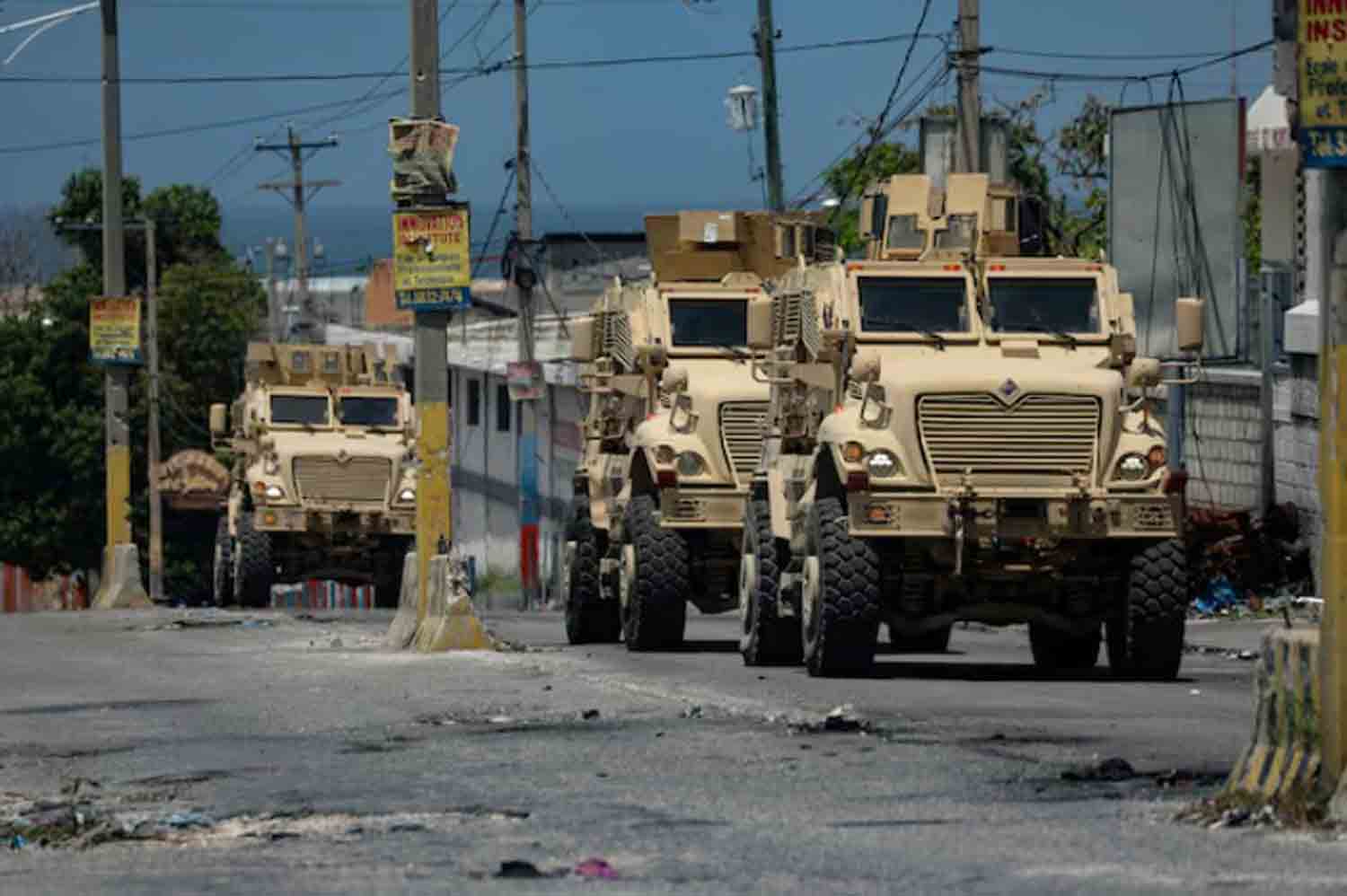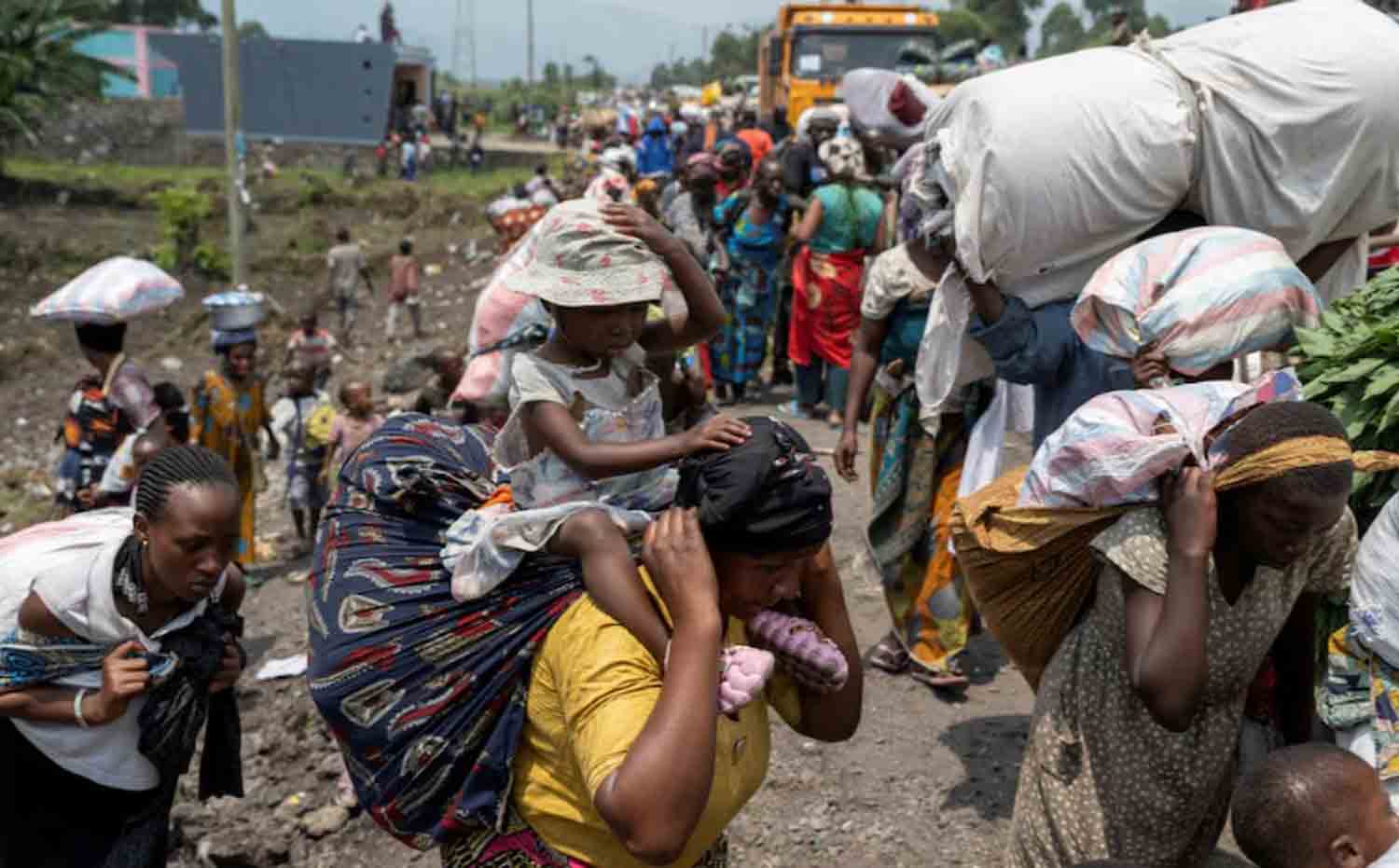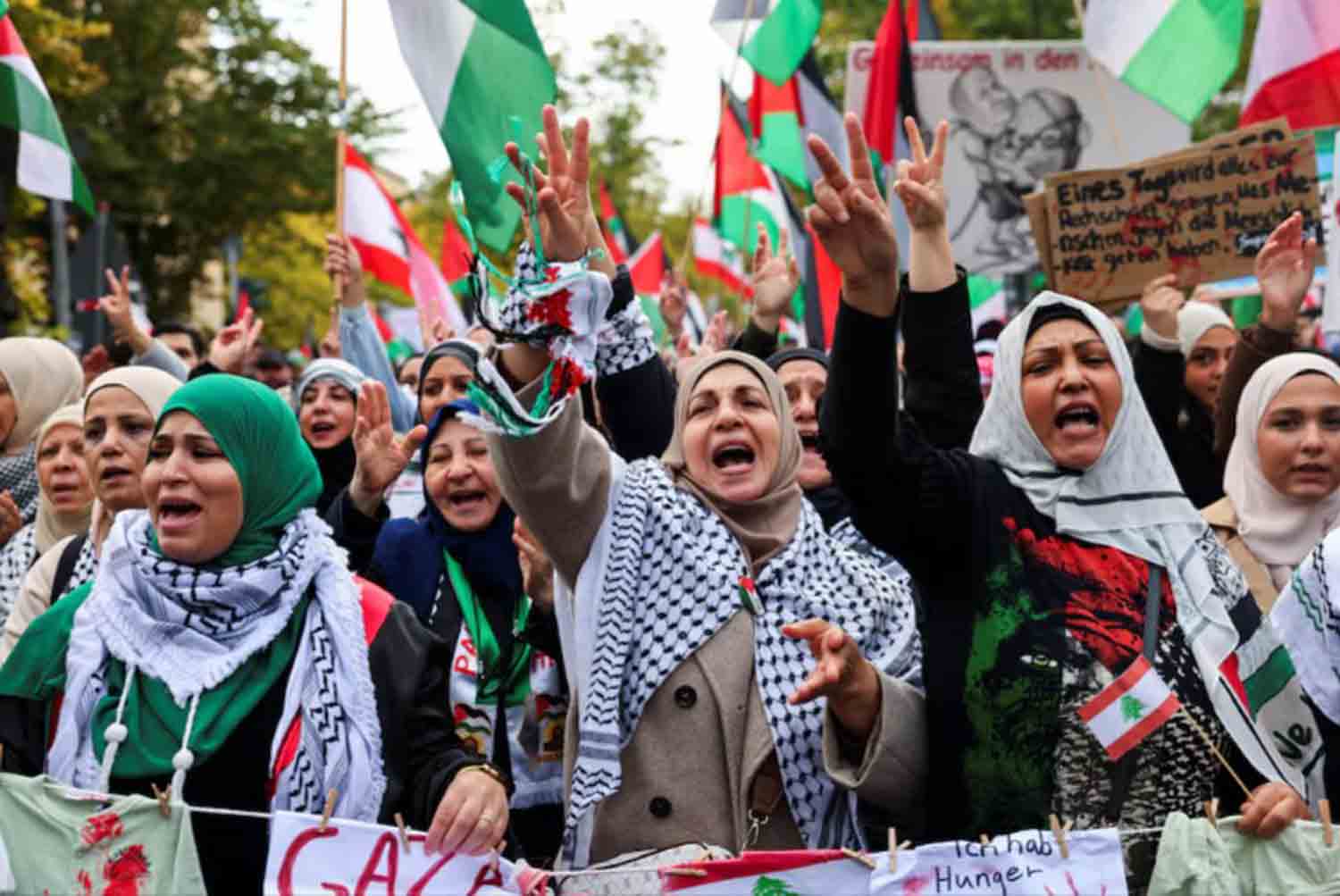A brutal gang assault in Haiti a few days ago resulted in numerous fatalities, with homes and vehicles set ablaze, forcing thousands to flee for their safety. This incident marks yet another tragic chapter in a nation plagued by severe violence for many years.
The attack occurred early Thursday morning in the central town of Pont-Sonde, perpetrated by members of the Gran Grif gang. They killed at least 70 individuals, including infants, as the Caribbean nation grapples with persistent lawlessness exacerbated by the assassination of President Jovenel Moise in 2021.
WHO IS THE GRAN GRIF GANG?
Gran Grif, one of Haiti’s lesser-known criminal organizations, is led by Luckson Elan, who claimed responsibility for the massacre. In an audio message circulated on social media, Elan stated that his gang was retaliating against residents who allegedly assisted a vigilante group that was thwarting their extortion efforts on a nearby major highway. Recently, Elan, aged 36, was sanctioned by the U.S. government, alongside former Haitian lawmaker Prophane Victor, who is accused of establishing and arming local gangs.
WHY DO GANGS HAVE POWERS IN HAITI?
Victor and Elan have leveraged their control over gangs in Haiti to sustain the ongoing violence and instability, as stated by the U.S. Department of Treasury’s Office of Foreign Assets Control last week. Gran Grif, identified by security analysts as the largest gang in Haiti’s Artibonite department, operates in a region that encompasses a significant portion of the country’s rice production. This gang emerged when Victor began supplying firearms to young men in Petite Riviere and is notorious for various abuses, including gender-based violence and the assault of women and children.
The disproportionate power of gangs in Haiti can be attributed to the weakening of the government in this former French colony, which has allowed these groups to fill the void and extend their influence over critical roadways and infrastructure. Their criminal activities encompass extortion and the trafficking of weapons and narcotics. A prominent figure among these gangsters is 46-year-old Jimmy “Barbeque” Cherizier, a former police officer. The United Nations has implicated him in several massacres, including a notorious incident in 2018 that resulted in the deaths of numerous individuals and the destruction of hundreds of homes in the La Saline neighborhood of the capital.
In 2020, Cherizier announced the formation of a gang coalition known as G9 Family and Allies, which united nine gangs from the capital region. Under his command, this alliance seized control of Haiti’s primary fuel port earlier this year, disrupting transportation and leaving significant portions of the population, including hospitals, without the fuel necessary to operate generators.
WHY HAS THE GOVERNMENT STRUGGLED TO CONTAIN THE GANGS?
For decades, Haiti’s government has faced challenges in delivering essential services, particularly in the realm of security. The national police force is significantly outmatched and severely understaffed, having lost thousands of officers in recent years due to dismissals and emigration.
The dire economic conditions, characterized by soaring inflation and poor agricultural yields, have exacerbated the situation, pushing nearly half of the population into severe hunger, with some regions nearing famine, as reported by international organizations.
This worsening security climate has coincided with a prolonged inability to conduct local elections. Earlier this month, the interim presidential council established a provisional electoral authority, marking a step towards reinstating elections and fostering hopes for a more stable government. The preliminary plan aims to hold elections by 2026, a full decade after the last ones took place.
WHAT IS CURRENT STATUS OF THE U.N.-BACKED SECURITY MISSION?
Recently, the U.N. Security Council reached a unanimous decision to extend the authorization for an international security force for another year. This force is designed to assist local law enforcement in combating gang violence and restoring law and order.
However, the deployment of this long-awaited security force has been sluggish and is dependent on voluntary contributions. To date, the mission has seen limited success in aiding Haiti in reestablishing order, with only approximately 400 police officers, primarily from Kenya, currently on the ground.
In addition to U.S. financial support and Kenya’s initial troop deployment, countries such as Benin, Jamaica, the Bahamas, and Belize have committed to providing at least 2,900 troops, but these contributions have yet to significantly materialize.
The previous Haitian government initially requested this force two years ago. Since that time, gangs have gained control over much of the capital and have spread their influence to surrounding regions, exacerbating a humanitarian crisis that has led to widespread displacement among the country’s population of around 11 million.
Discover more from Defence Talks | Defense News Hub, Military Updates, Security Insights
Subscribe to get the latest posts sent to your email.





